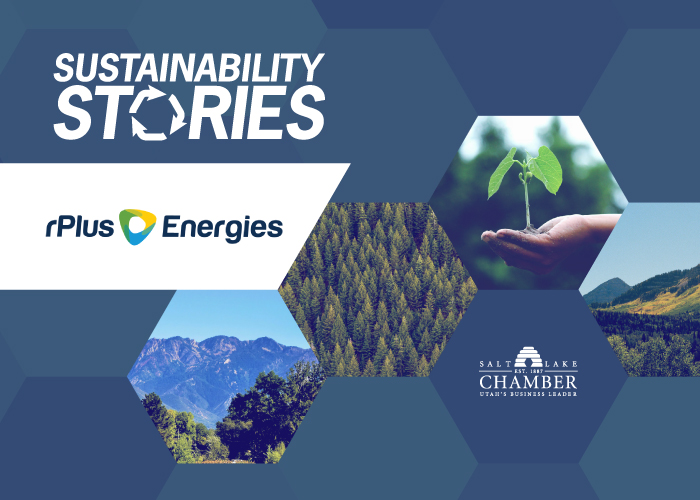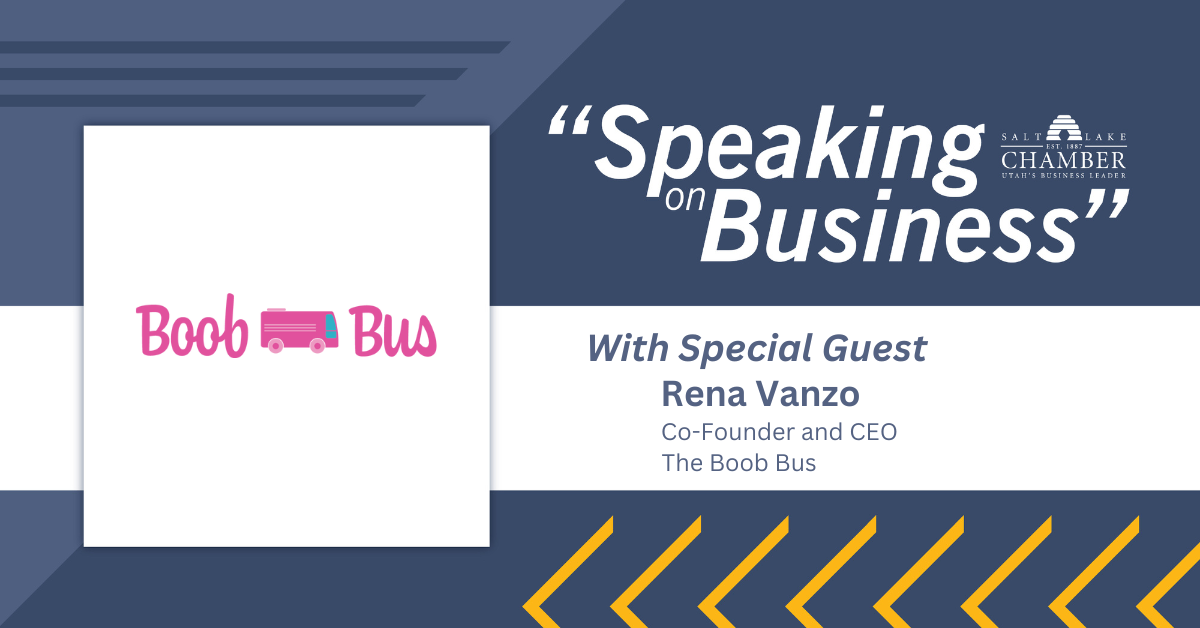In the modern economy, environmental sustainability is one factor in how businesses can stand out and thrive. Each month, the Salt Lake Chamber will highlight a Utah business making positive strides for the environment and our natural resources to encourage support and innovation.
Our feature, rPlus Energies, is all about creating sustainable energy through big solar, wind and battery storage projects. By partnering with utilities and communities, they’re working to reduce emissions and drive us toward a zero-carbon future. We met with CEO Luigi Resta to learn more about their sustainability efforts.
Tell me more about rPlus Energies, what is the story behind its founding?
I founded rPlus Energies in September 2018 in partnership with Christian Gardner of the Gardner Company. At the time, I was on my family’s property in Northern California — off the grid, where I was raised on the first certified organic farm in the state. Christian approached me with a vision to invest in renewable energy, and it aligned perfectly with my background and passion.
rPlus Energies was established to develop utility-scale renewable energy projects that include solar, solar-plus-storage, wind, pumped storage hydro for long-duration energy storage and targeted transmission development. We deliver high-voltage power to utilities and large commercial clients such as data centers. Our mission is to drive the clean energy transition through innovative, sustainable solutions that benefit both the grid and the communities we serve.
For someone just starting out, what materials or practices would you recommend prioritizing to build a more sustainable business?
Clarity of vision is essential when building a sustainable business. It’s important to clearly define your goals and objectives from the start. At rPlus Energies, we approach everything with intentionality and thoughtfulness. Success in sustainability requires both fortitude and direction, recognizing that every action has a consequence. When your actions are grounded in purpose, the outcomes are far more effective. Efficiency and sustainability go hand in hand; minimizing waste and maximizing impact should be a guiding principle in all areas of your operations.
What are some misconceptions people have about sustainable or renewable businesses?
There are quite a few misconceptions, but one of the most common is the belief that renewable energy projects only succeed because of government subsidies. In reality, we are competitive on a level playing field with traditional energy sources. Another misconception is that technologies like solar and wind are harmful to the environment — claims like they “scorch the earth” or cause damage, which simply aren’t true.
One of the great advantages of solar, wind and battery storage is that, once installed, they don’t require ongoing fuel costs — the sun rises, the wind blows and those natural resources are available to us every day. At rPlus Energies, we use the phrase “our power” because we believe renewable energy is a domestic resource. It’s our sunlight, our wind, our water — developed here and benefiting our communities, not imported from somewhere else.
Do you have a favorite simple strategy to be sustainable in your own life?
One strategy I value is staying mindful of everyday actions — small choices really do add up. At our company, we’re intentional about sustainability in even the simplest routines. For example, we provide lunch for our team on Fridays, but we choose not to reorder from restaurants that use Styrofoam packaging, because it’s harmful to the environment.
Personally, I try to be conscious about things like water use when brushing my teeth or turning off lights when leaving a room, even in hotel stays, where others might not think twice. I also believe we should rethink our reliance on cars. If I can walk instead of drive, even if it takes a few extra minutes, I’ll always choose the walk. It’s better for the environment, good for our health and gives you a moment to disconnect. I even park at the far end of parking lots just to get a few extra steps in.
What does the future look like for rPlus Energies?
The future of renewable energy is bright. When I started over 20 years ago, developing solar was tough and battery storage didn’t exist. Today, renewables are cost-competitive with any other energy source. After decades of flat energy use, we’re now seeing major growth driven by electric vehicles, the reshoring of manufacturing and AI-powered data centers. It’s a pivotal moment for the industry and for the next 15 years or more, we’ll need more clean power every year. For anyone looking to get into energy, there’s never been a better time.
To read other sustainability stories, click here.


